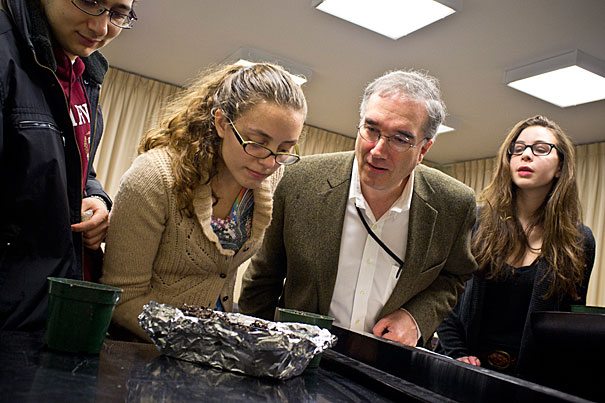Health
-
Lin Test
text with link. This is a quiz. Some text Name Name Quo modo autem philosophus loquitur? Tecum optime, deinde etiam cum mediocri amico. Invidiosum nomen est, infame, suspectum. Name Name…
-

Gender-affirming care is rare, study says
Fewer than 1 in 1,000 transgender youth receive hormones or puberty blockers

-

Nature offers novel approach to oral wound care
Slug’s sticky mucus inspiration behind adhesive hydrogel that can seal wounds in wet environment

-

Time for a rethink of colonoscopy guidelines?
Change informed by new findings would help specialists focus on those most at risk, researcher says

-

Should pharmacists be moral gatekeepers?
‘The problem is not opioids,’ says author of ‘Policing Patients’ — it’s overdose, pain
-

The deadly habit we can’t quite kick
Actions by tobacco companies worry researcher even amid ‘dramatic decrease’ in smoking among young Americans

-
The search for life’s stirrings
As science wrestles with the problem of how life arose on Earth, hindsight shows that seemingly intractable obstacles can have simple, even elegant solutions, said Nobel laureate Jack Szostak.
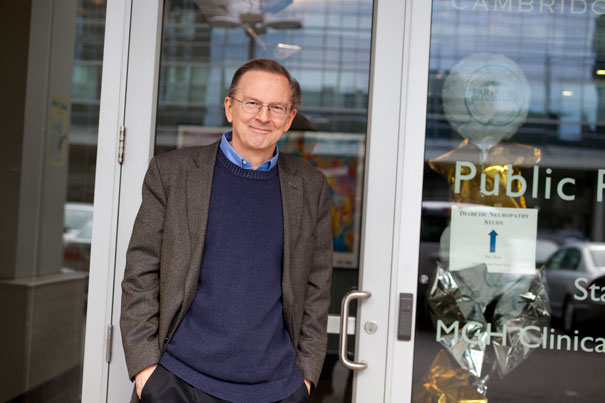
-
Making the worms turn
Biophysicist Aravinthan Samuel has developed new techniques to monitor and influence the behavior of roundworms to learn how their basic nervous systems work, a first step to understanding the circuitry in more complex creatures, like humans.
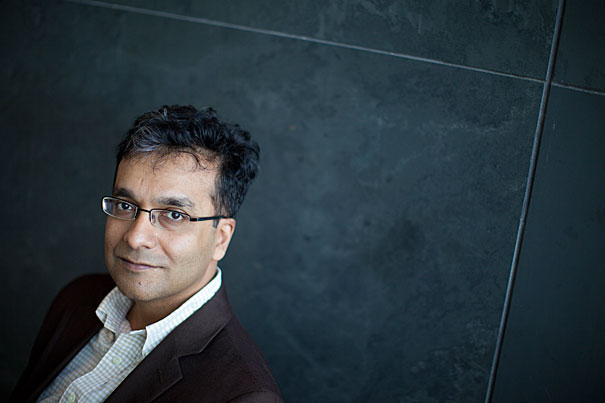
-
Blood test for depression?
The initial assessment of a blood test to help diagnose major depressive disorder indicates it may become a useful clinical tool.

-
Triumphs against smallpox, polio, AIDS
Harvard researchers have been at the forefront of many battles against devastating diseases, leading pivotal breakthroughs against scourges from 1800 to the present.

-
Decoding keys to a healthy life
Now 74 years young, the Harvard Study of Adult Development continues to yield a treasure trove of data about how people behave, and change — including predictions of strong indicators to a happy life.

-
Broad Institute awarded $32.5M grant
The Eli and Edythe L. Broad Institute of Harvard and MIT today announced that it has received a $32.5 million grant from the Boston-based Klarman Family Foundation to support a new collaborative effort focused on deciphering how human cells are wired.

-
PFCs may hinder vaccine response
Perfluorinated compounds (PFCs), widely used in manufactured products such as non-stick cookware, waterproof clothing, and fast-food packaging, were associated with lowered immune response to vaccinations in children in research led by Philippe Grandjean of the Harvard School of Public Health.
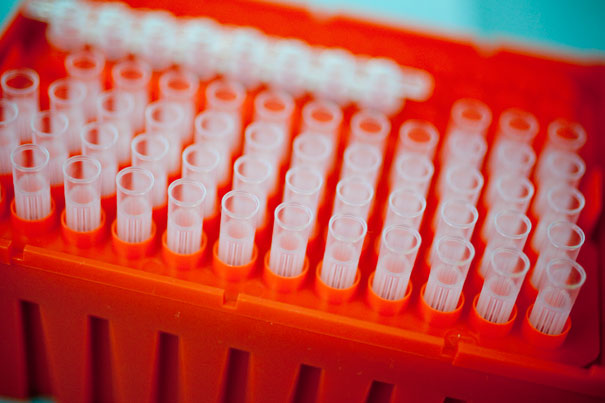
-
A winter wellness workout
Dozens of Harvard undergraduates started the year with a new emphasis on wellness, thanks to the Optimal Health program. With presentations from a lifestyle medicine consultant, a nutritionist, a personal trainer, a sleep specialist, and a stress manager, Optimal Health emphasized prevention and fitness.
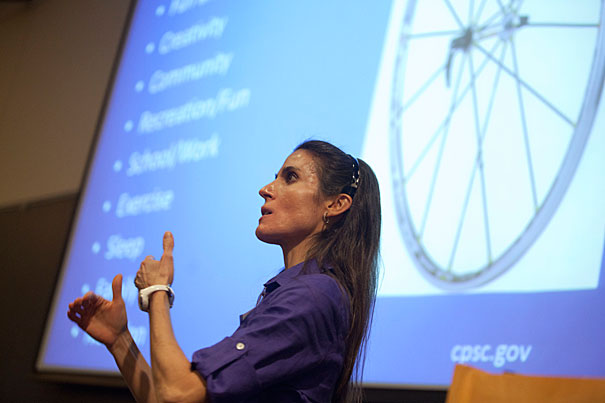
-
Enlightened eating
Color-coded food labeling and adjusting the way food items are positioned in display cases encouraged healthy choices in a large hospital cafeteria in a study by MGH researchers.

-
Clues to addiction
Harvard scientists have developed the fullest picture yet of how neurons in the brain interact to reinforce behaviors that range from learning to drug use, a finding that could open the door to new treatments for addiction.

-
Tumor cells can prevent tumor spread
A new study from Harvard-affiliated Beth Israel Deaconess Medical Center finds that a group of little-explored cells in the tumor microenvironment likely serves as an important gatekeeper against cancer progression and metastasis.
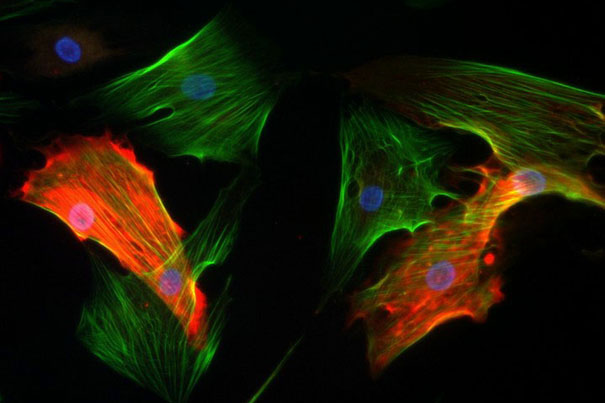
-
Muffin makeover
Nutrition experts at HSPH and chefs and dietitians at the Culinary Institute of America have developed five muffin recipes that incorporate healthy fats and whole grains, and use a lighter hand on the salt and sugar.

-
Researchers develop ‘smart’ nanotherapeutics
Research collaboration between the Wyss Institute for Biologically Inspired Engineering at Harvard University and Children’s Hospital Boston has developed “smart” injectable nanotherapeutics that can be programmed to selectively deliver drugs to the cells of the pancreas.

-
Good news for marathoners
Harvard researchers have found that those participating in marathons and half-marathons are not at an increased risk of cardiac arrest.

-
Reaping benefits of exercise minus the sweat
A team led by researchers at Harvard-affiliated Dana-Farber Cancer Institute has isolated a natural hormone from muscle cells that triggers some of the key health benefits of exercise.
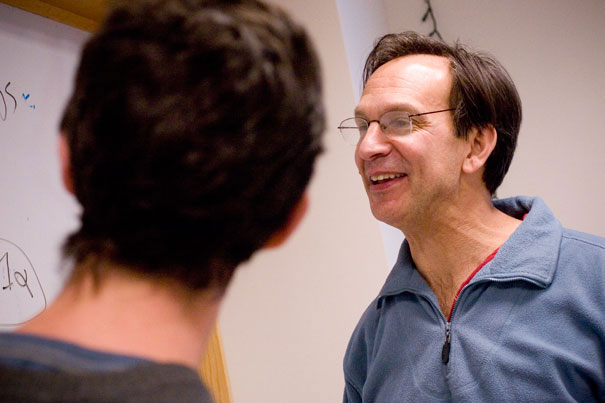
-
Struttin’ its stuff
Harvard researchers have found that a tiny motor inside of us called dynein, one tasked with shuttling vital payloads throughout the cell’s intricate highway infrastructure, staggers, which is quite contrary to the regular, efficient poise of its fellow motors.

-
Nicotine letdown
Nicotine replacement therapies did not improve smokers’ chances of long-term cessation in a study by researchers at Harvard and UMass.

-
Age-related effects of MS may prove reversible
In a new study, Harvard stem cell researchers and scientists at the University of Cambridge have found that the age-related degeneration in conditions such as multiple sclerosis (MS) may be reversible.

-
A possible aid for navigators
John Huth, the creator of the popular “Primitive Navigation” course, spent most of last summer investigating a mysterious phenomenon called “underwater lightning,” which some say can be used as a navigational tool.

-
Use, abuse of Internet pharmacies
Efforts to halt the growing abuse of prescription drugs must include addressing the availability of these drugs on the Internet and increasing physician awareness of the dangers posed by Internet pharmacies.

-
Health reform in the crosshairs
With health care costs set to gobble up more of the federal budget, analysts say that additional reforms are inevitable, though national indecision over what they should look like could mean a rocky path ahead.

-
Slowing neurodegeneration in Huntington’s
Harvard researchers have found a treatment that increases brain levels of an important regulatory enzyme may slow the loss of brain cells that characterizes Huntington’s disease and other neurodegenerative disorders.

-
Why some TB cells resist antibiotics
A new study led by Harvard School of Public Health researchers provides a novel explanation as to why some tuberculosis cells are inherently more difficult to treat with antibiotics.
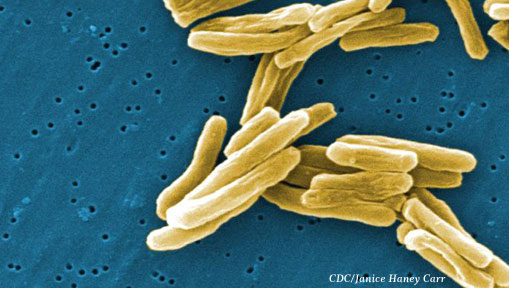
-
Relief for the weary
Ninety instructors and junior faculty members at Harvard Medical School have received fellowships from the Eleanor and Miles Shore 50th Anniversary Fellowship Program for Scholars in Medicine. The program provides grants for recipients to hire lab help or to gain protected time by easing clinical duties.

-
Harvard professors partner in unique approach
The first-of-its-kind strategy is credited for curing at least five of 10 children at a rural Rwandan hospital; two others are in remission while receiving chemotherapy, and three children have died. The long-distance team approach was designed by Harvard Medical School instructor in medicine Sara Stulac, director of pediatrics for Partners In Health.
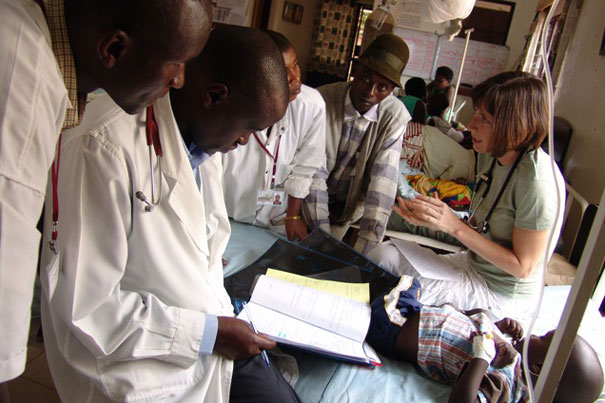
-
The plight of adolescents, worldwide
Children and youths globally are suffering from neglect and abuse, living on the streets, being recruited into militias, and contracting serious ailments. A two-day conference examined the troubles facing the world’s adolescents.
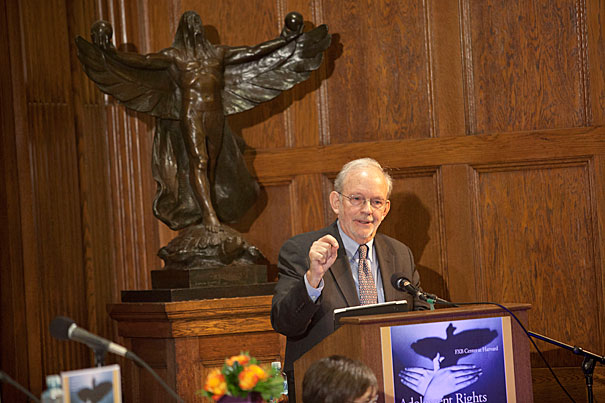
-
Traumatic injury sets off a ‘genomic storm’
Harvard researchers are among a nationwide team that has found serious traumatic injuries, including major burns, set off a “genomic storm” in human immune cells, altering around 80 percent of the cells’ normal gene expression patterns.

-
Plotting the demise of AIDS
Hundreds of scientists, activists, doctors, and others who have been on the front lines battling the HIV virus, gathered on Harvard’s Longwood campus for a conference reflecting on progress against the ailment, while rededicating themselves to end the epidemic.
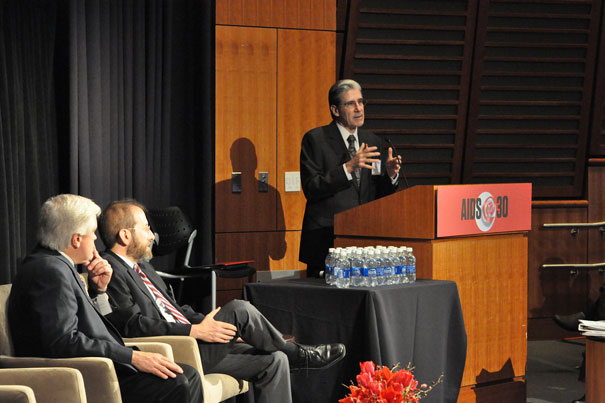
-
A data bank to battle cancer
Researchers at Brigham and Women’s Hospital and the Dana-Farber Cancer Institute are collaborating on a massive, long-term effort to collect and analyze tumor tissue from 10,000 cancer patients annually. The researchers hope the data will enable them to understand better how tumors behave, while providing opportunities to test new therapies.

-
Worming out of listening
A freshman seminar helps students to understand Darwin by reading his works and re-creating 10 experiments — including one showing that the wiggly creatures just don’t hear.
